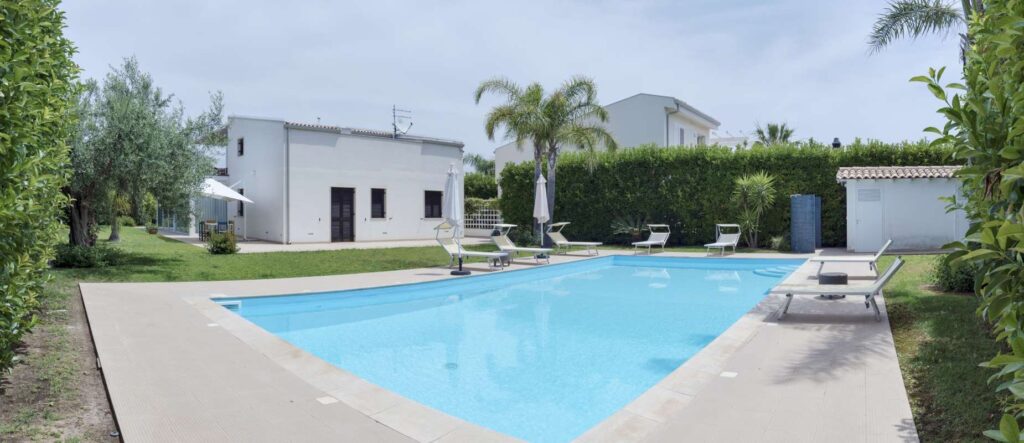The Rise of Green Pools: Pros and Cons of Minimal Chemical Usage
Explore the growing trend of green pools, examining their minimal chemical usage and the benefits and drawbacks for pool owners and the environment.
As the world becomes increasingly aware of environmental issues, various industries are adapting to more sustainable practices. One area that has seen significant change is pool maintenance, leading to the emergence of green pools. These eco-friendly alternatives prioritize minimal chemical usage while aiming to maintain water clarity and safety. This blog post will delve into the pros and cons of green pools, exploring their viability and what pool owners need to know before making the switch.
Understanding Green Pools
Green pools are defined by their reduced reliance on harsh chemicals, particularly chlorine, which is commonly used in traditional pools. Instead, these pools may utilize alternative sanitation methods, such as saltwater systems, mineral purifiers, and natural filtration systems. As a result, they present a more environmentally friendly pool maintenance option.- Saltwater Systems: These pools use chlorine generated from salt through a process called electrolysis, significantly lowering the amount of added chemicals.- Mineral Purifiers: Systems that use minerals like copper and silver to purify the water can provide a softer swimming experience while reducing chemical usage.- Natural Filtration: This method involves using natural materials such as sand and gravel to filter water without chemicals, appealing to those looking for a holistic approach.The rise of green pools is not just a trend; it reflects a growing demand for sustainable practices in all areas of life, including pool ownership.
The Benefits of Green Pools
Switching to a green pool system offers several compelling advantages that resonate with environmentally conscious consumers and pool owners alike:- Reduced Chemical Exposure: Traditional pool chemicals can be harsh on skin and eyes. By minimizing chemical usage, green pools offer a gentler swimming experience, particularly appealing for families with children or individuals with sensitive skin.- Environmental Benefits: Lowering chemical usage reduces the environmental impact of pool maintenance. Chemical runoff from pools can harm aquatic ecosystems; thus, eco-friendly pools help protect local waterways.- Cost Savings: While the initial setup for a green pool may be higher, the long-term savings on chemical purchases and maintenance can be substantial. Pool owners often find that they spend less on chemicals once their systems are established and optimized.- Improved Water Quality: Many green pools claim to provide clearer, more balanced water due to the natural processes involved in their maintenance. This can lead to a more pleasant swimming experience.- Healthier Swimming Environment: With less reliance on harsh chemicals, green pools can promote a healthier environment for swimmers, reducing the likelihood of allergic reactions triggered by chlorine and other pool chemicals.Overall, the benefits of green pools align with the growing consumer desire for sustainable living and health-conscious choices.
The Drawbacks of Green Pools
While the advantages of green pools are enticing, there are also drawbacks to consider:- Initial Setup Costs: Transitioning to a green pool may require significant investment in new equipment or systems. Depending on the existing setup, this can include purchasing saltwater chlorinators or mineral systems, potentially deterring some pool owners.- Maintenance Challenges: Green pools require a shift in maintenance practices. Pool owners need to be educated on the new systems, which may involve learning about water chemistry management and natural filtration methods. Without proper understanding, there could be issues with water quality.- Weather Dependence: The effectiveness of alternative systems like natural filtration can be affected by weather conditions. Heavy rain or debris falling into the pool can disrupt the balance and cleanliness, requiring more frequent monitoring and maintenance.- Limited Availability: Not all pool service providers are familiar with green pool systems. This may limit the options for maintenance and support, especially in areas where traditional methods dominate.These drawbacks can pose challenges for pool owners considering the switch to a green pool system, and it’s essential to weigh these factors carefully before making a decision.
Choosing the Right Green Pool System
For pool owners interested in adopting a green pool approach, understanding the various systems available is crucial. Here are some tips for choosing the right one:- Research Options: Investigate different systems—saltwater, mineral purifiers, and natural filtration. Each has its unique benefits and challenges, so thorough research will help in making an informed decision.- Consult Professionals: Engage with experienced pool maintenance professionals who are knowledgeable about green systems. They can provide insights and help determine the best approach based on individual pool conditions and preferences.- Evaluate Costs: Consider both upfront and long-term costs. While some systems may be more expensive initially, the overall savings on chemicals and maintenance should be factored into the decision.- Consider Local Climate: The local environment and climate can influence the effectiveness of certain green systems. For example, areas with heavy rainfall may require different considerations than drier regions.- Focus on Training and Support: Ensure that training and support are available for the chosen system. This is particularly important for those new to pool maintenance, as proper education can prevent common pitfalls associated with green systems.By taking the time to evaluate these factors, pool owners can make a decision that aligns with their environmental values while ensuring a safe and enjoyable swimming experience.
Best Practices for Maintaining a Green Pool
Once a green pool system is established, ongoing maintenance is essential to ensure its effectiveness. Here are some best practices to keep in mind:- Regular Testing: Test water chemistry frequently to ensure that pH and alkalinity levels are balanced. This is particularly important in green pools, where maintaining the right balance can prevent algae growth and other water quality issues.- Proper Filtration: Ensure that the filtration system is functioning optimally. Natural filtration systems, in particular, need regular checks to ensure that they are clear of debris and functioning as intended.- Routine Cleaning: Skim leaves and debris from the pool’s surface regularly and clean the pool walls and floor to prevent buildup. Keeping the pool clean reduces the likelihood of algae and bacteria growth.- Educate Yourself: Stay informed about best practices for maintaining green pools. Many resources are available online, including forums and educational websites dedicated to eco-friendly pool maintenance.- Seek Professional Help When Needed: If challenges arise that are difficult to manage alone, consider reaching out to professionals who specialize in green pools. Their expertise can help troubleshoot issues and keep the pool in top condition.Implementing these best practices will help ensure that the transition to a green pool is smooth and successful, maximizing the benefits of reduced chemical usage.
Conclusion
The rise of green pools represents a significant shift towards more sustainable practices in pool maintenance. With the pros of reduced chemical exposure, environmental benefits, and potential cost savings on one side, and the challenges of initial setup costs and maintenance learning curves on the other, it’s clear that a thoughtful consideration is necessary before making the switch.As the demand for eco-friendly options grows, pool owners have the opportunity to contribute to a healthier planet while enjoying a refreshing swimming experience. If you’re considering transitioning to a green pool or looking for more information on how to maintain your current system, explore options like
pool routes for sale in Florida and
pool routes how it works. Remember, investing in a green pool is not just about reducing chemicals—it’s about embracing a lifestyle that values sustainability and health. Whether you are an aspiring entrepreneur or an existing pool service provider, the shift towards greener practices can open opportunities for innovation and customer satisfaction. Join the movement towards eco-friendly swimming today! For further insights, feel free to reach out via
Superior Pool Routes Contact Us.



